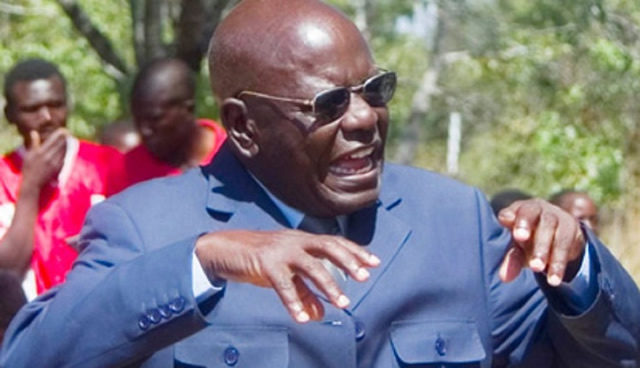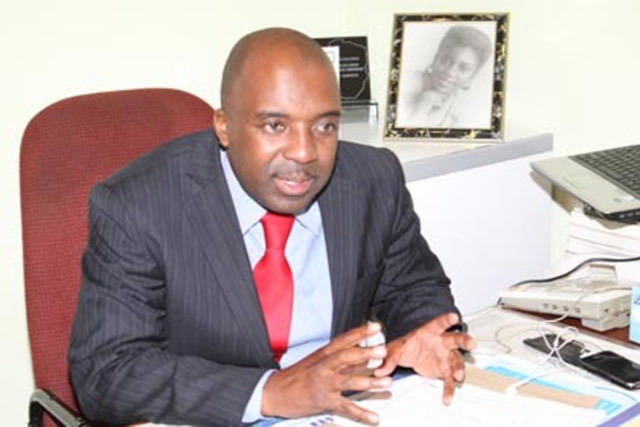Contractors body taking indigenisation to new level

 Carter Mavhiza Business Correspondent
Carter Mavhiza Business Correspondent
The greater part of 2013 was marked with different streams of proclamation relating to the Government policy on indigenisation.
The media was awash with comments and opinions and the year came to an end with no sight of amendments or repeal to the statute as was hoped for by some sections of economic players.
As the sun was setting on 2013 a group of local earthmoving contractors met in the sunshine city of Harare to give birth to what is now a fully-fledged earthmoving contractors body called Indigenous Earthmoving Contractors Association of Zimbabwe (IECAZIM).
The new representative body has a mandate enshrined in its constitution to become a national body that offers a variety of earthmoving equipment of repute in chosen markets that will make a positive impact in Zimbabwe while delivering quality and sustainable business to the nation. The new level of indigenisation ensures that indigenous or local services are visible and becoming effective as opposed to the prevailing trend.
IECAZIM brings together more than 100 small scale contractors, whose main focus in business is equipment hire, civil works and the supply of materials. The association comprises all contractors in Zimbabwe who do business mainly with the Ministry of Transport, local municipalities and covers all provinces.
The association represents the biggest congregation of equipment owners and providers of related services. Thus, the association possesses the massive capacity to work with Government on the delivery of significant projects. IECAZIM now presents a single point of contact for information dissemination and easier management of the industry and will seek to implement entry barriers to ensure only serious contractors with vested interest in the industry remain. This will help to ensure that Government does not get a raw deal from unscrupulous contractors.
After experiencing a representation gap where yesteryear associations did not sufficiently advocate issues relating to contractors of our members’ sizes there was a compelling need to form a trade association with a capacity to address all pertinent issues. The major motivation for the formation of IECAZIM was to collectively address multiple challenges that confront all contractors in the current business environment.
The association derives its mandate from its drafted constitution, which obliges and mandates it to broadly address challenges and opportunities in the operating environment for the sustainability and viability of all contractors. IECAZIM also seeks to be the platform through which all misgivings by customers and partners will be amicably dealt with in a holistic manner.
The art of speaking with one voice for players in the same trade has in many economies compounded the voice of advocacy and opened doors that single players could not have access. After its promulgation the association’s executive committee has since met Deputy Minister of the Ministry of Transport and Infrastructural Development and other senior officials. The business was firstly a familiarisation caucus and that was a huge step in the right direction.
In the past, individual earthmoving contracting businesses have played a very crucial role in the facelift and development of infrastructure in the nation. The major challenge associated with these players was that they had no representative body that could lobby for fair rates and timeous release of payments by the government which was and is the main consumer of the services.
The absence of a representative body meant that these contractors enjoyed the low rates that prevailed as they sought to outsmart each other in the market. After securing the contracts and having the service delivered they had to endure a gruesome waiting period before the Government could release payment. These bottlenecks retarded the growth of the local earthmoving contractors and in some cases forced them out of business forever.
Contractors are facing a multiplicity of challenges. These require refocusing our business models and engagement with Government to avoid an inevitable demise. Some of those challenges relate to unit rates, delayed payments, preference of foreign contractors and high maintenance costs.
The association highly regards reasonability in terms of pricing and appreciates the overarching need to cut costs and help Government attain its objectives at lowest possible costs. As a result of some sub optimal rates will be tendered viz a vis the viability of the industry. Of serious concern was the omission to consider taxation.
At the heart of IECAZIM is the topical issue of quality assurance. The association notes that most contractors have not accorded issues of standard service delivery and quality with the weight that it deserves. This has resulted in the government and other clientele failing to deliver projects timeously and within the budgeted expenditure.
Going forward the association seeks the design and adoption of performance standards for both machines and labour force supplied by contractors, enforcement for the adoption of ethical norms and values for all contractors and the creation of quality assurance committees to ensure continual liaison with Provincial Engineers, Construction Engineers and Supervisors to locally and speedily resolve any challenges during while work is in progress.
The Government has already set up the Build Operate and Transfer facility (BOT) and in the present reality of a liquidity crunch it was very difficult for the local players to partake in the tender process and let alone the $1 000 to purchase the document. It is apparent that the responsible ministry finds ways together with players such as IECAZIM so that the locals can stand to benefit in the revamping and building of infrastructure.
The side-lining and relegation from the play-field of local contractors in major projects is an act of mischief that does align to the dictates of indigenisation. The assumption that local contractors are more expensive and uncompetitive is oblivious to the reality that the local costing structures are reflective of the economic environment where the cost of labour, energy, transportation and capital costs are highest in comparison to regional averages.
To champion this noble initiative of indigenous contractors coming together, there is a competent and seasoned team of founding executive members led by the chairman Mr Watson Gara who is an economist by profession and a thriving businessman, vice chairman Mr Washington Nyatanga a businessman, the secretary Mr Liberty Chizikani a businessman, the treasurer Mr Stanley B C Chigwida who is a qualified accountant and businessman and other committee members who include representatives for Masvingo, Bulawayo, Gweru and Mutare.
IECAZIM is founded on the cornerstones of integrity, transparency, fairness, equity and effectiveness as its core values. With Zim asset calling for the revamping of infrastructure, it is important that a quota of the projects be reserved for the local contractors.
In the day of indigenisation it is imperative that structures such as IECAZIM become relevant for building the nation.










Comments